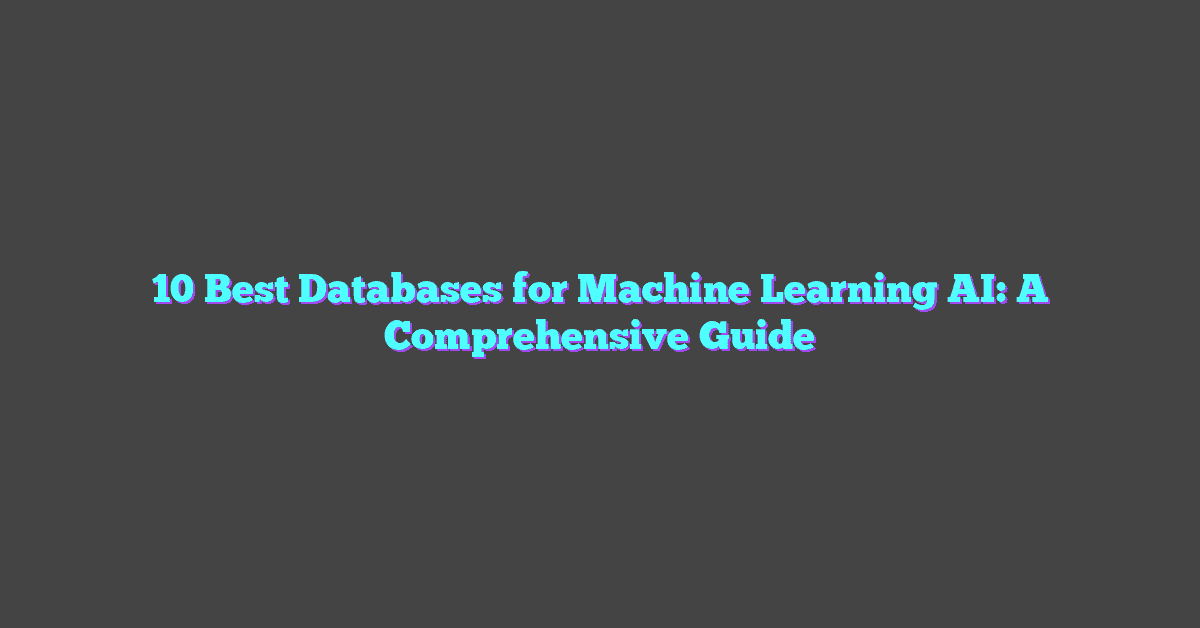Artificial Intelligence (AI) is no longer a concept confined to science fiction; it’s transforming industries and infrastructure at an astonishing pace. From optimizing supply chains to enhancing predictive maintenance, AI’s applications are revolutionizing how businesses operate. Companies are leveraging AI to not only streamline operations but also to innovate and stay ahead of the competition.
Imagine a factory where machines predict their own maintenance needs, or a city where traffic lights adapt in real-time to ease congestion. These are just a few examples of how AI is making industry and infrastructure smarter, more efficient, and incredibly adaptive. As AI continues to evolve, its potential to drive innovation and improve infrastructure is limitless.
Exploring AI’s Role in Industry Innovation
AI is at the forefront of driving industry innovation, enhancing operational efficiency and enabling advanced infrastructure solutions. Two key areas where AI makes a significant impact are manufacturing and supply chain optimization.

AI in Manufacturing Efficiency
AI optimizes manufacturing processes by leveraging machine learning algorithms, data analytics and real-time monitoring. It predicts equipment failures, ensuring timely maintenance and reducing downtime. For instance, predictive maintenance systems analyze historical and real-time data to foresee potential breakdowns. This allows for proactive repairs, enhancing productivity.
Robotic process automation (RPA) is another example, automating repetitive tasks on production lines. These robots work faster and with greater precision than humans, reducing error rates and increasing output. AI-driven quality control systems inspect products, detecting defects with higher accuracy, ensuring consistent quality across production batches.
AI in Supply Chain Optimization
AI enhances supply chain efficiency through predictive analytics, demand forecasting and route optimization. AI algorithms analyze vast datasets, identifying patterns and trends that human analysts might overlook. This improves demand forecasting, enabling companies to optimize inventory levels, reducing overstock and stockouts.
AI also streamlines logistics by optimizing delivery routes. Machine learning models factor in traffic, weather, and other variables to select the most efficient paths. This reduces delivery times and fuel consumption, leading to cost savings and environmental benefits. Autonomous vehicles and drones powered by AI also contribute to improved logistics, ensuring timely deliveries with minimal human intervention.
AI and Infrastructure Development
AI is revolutionizing infrastructure development by leveraging advanced algorithms and data analytics to optimize urban planning and enhance transportation systems. The technology promises substantial improvements in efficiency and sustainability.
AI in Urban Planning
AI assists in urban planning by analyzing vast datasets to identify patterns and insights that human planners might miss. For example, AI algorithms can predict population growth, traffic patterns, and environmental impacts, helping planners design more efficient and sustainable cities. AI tools like machine learning models generate simulations to forecast the effects of new infrastructure projects, assisting decision-makers in optimizing resource allocation. The technology supports smart city initiatives by integrating data from various sources, including IoT devices and sensors, to create adaptive and responsive urban environments.
AI in Transportation Systems
AI enhances transportation systems by improving traffic management and reducing congestion. Machine learning algorithms analyze real-time traffic data, enabling dynamic traffic signal adjustments to optimize flow. AI supports predictive maintenance of public transit systems by monitoring equipment health and predicting failures before they occur, thereby reducing downtime and improving reliability. Additionally, autonomous vehicles powered by AI algorithms promise safer and more efficient transportation, utilizing computer vision and sensor fusion to navigate complex environments. AI also plays a crucial role in optimizing logistics and supply chain operations by providing route planning, demand forecasting, and efficient resource management.
AI in Renewable Energy and Sustainability
Artificial Intelligence (AI) is playing a pivotal role in the renewable energy sector and advancing sustainability efforts. By leveraging AI, the industry can optimize energy generation, distribution, and usage.
Enhancing Energy Grids with AI
AI enhances energy grids by predicting energy demand and supply fluctuations. Machine learning algorithms analyze historical data and real-time information, helping grid operators balance load and avoid outages. For example, energy companies use AI to forecast solar and wind energy production based on weather patterns. This improves grid stability and ensures a reliable energy supply.
AI for Waste Management Solutions
AI revolutionizes waste management by optimizing collection routes and improving recycling rates. Image recognition technologies can identify recyclable materials and automate sorting processes. Municipalities employ AI-driven systems to monitor waste levels in real-time, making collection more efficient. For instance, smart bins equipped with sensors and AI apps notify waste management services when bins are full. This reduces operational costs and minimizes environmental impact.
Ethical and Security Considerations
AI’s transformative power brings ethical and security considerations that mustn’t be neglected.
Data Privacy Issues
AI relies on vast data sets to function effectively. However, this raises significant data privacy issues, especially with personal data involved. Ensuring data anonymization and encryption protects user information. Compliance with regulations like GDPR and CCPA is essential to safeguard privacy and avoid legal repercussions. Unauthorized access, data breaches, and misuse remain critical challenges.
Managing AI Bias and Transparency
AI systems can inherit biases from their training data. Addressing AI bias involves using diverse data sets and continuously monitoring outcomes. Transparency in AI algorithms is crucial for trust and accountability. This can be achieved through explainable AI techniques, which make decision-making processes understandable to users and regulators. Ensuring fairness and building user trust hinges on managing bias and maintaining transparency effectively.
Conclusion
AI’s potential to drive industry innovation and infrastructure development is immense. By enhancing efficiency and sustainability across various sectors, it opens up new possibilities for smarter, more resilient systems. Whether it’s optimizing supply chains, improving traffic management, or revolutionizing renewable energy, AI is a game-changer.
However, it’s crucial to address the ethical and security concerns that come with this technology. Ensuring data privacy, managing AI bias, and maintaining transparency in algorithms will be key to building trust and maximizing AI’s benefits.
As industries continue to evolve, embracing AI responsibly will pave the way for a more innovative and sustainable future.
Frequently Asked Questions
How is AI reshaping industries like manufacturing and supply chain optimization?
AI is automating and improving efficiency in manufacturing through predictive maintenance, quality control, and robotics. In supply chain optimization, AI enhances demand forecasting, inventory management, and logistics, leading to reduced costs and improved efficiency.
What role does AI play in urban planning?
AI aids urban planning by analyzing data to optimize traffic flow, improve public transportation systems, and manage resources effectively. This leads to better city planning and enhanced livability for residents.
How does AI improve transportation infrastructure?
AI improves transportation infrastructure by managing traffic more efficiently, enabling autonomous vehicles, and optimizing public transit routes. These advancements decrease congestion, enhance safety, and offer more sustainable transit options.
What impact does AI have on renewable energy?
AI optimizes energy generation, distribution, and usage in the renewable energy sector. It also helps balance supply and demand, enhances grid stability, and maximizes the efficiency of renewable resources like solar and wind power.
How does AI enhance energy grid stability?
AI predicts demand and supply fluctuations with high accuracy, which helps in adjusting power distribution proactively. This ensures a stable and reliable energy grid, reducing the risk of outages and improving overall efficiency.
In what ways is AI revolutionizing waste management?
AI optimizes waste collection routes, automates sorting processes, and monitors waste levels in real-time. These innovations increase efficiency, reduce costs, and minimize environmental impact through better resource management.
What are the ethical considerations related to AI?
Ethical considerations of AI include data privacy issues, managing AI bias through diverse data sets, and ensuring transparency in AI algorithms. Addressing these concerns is crucial for maintaining fairness, user trust, and ethical AI deployment.
How can AI bias be managed?
AI bias can be managed by using diverse and representative data sets, implementing transparent algorithms, and regularly auditing AI systems to ensure they remain fair and unbiased. This helps in creating more equitable AI technologies.




